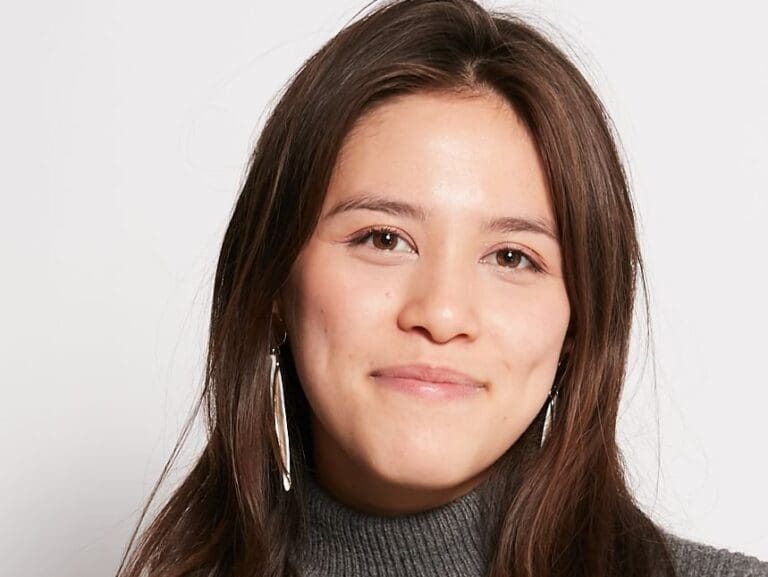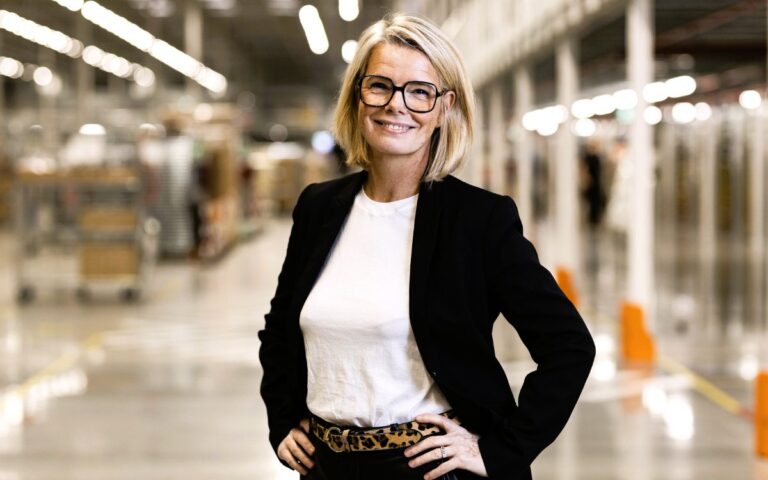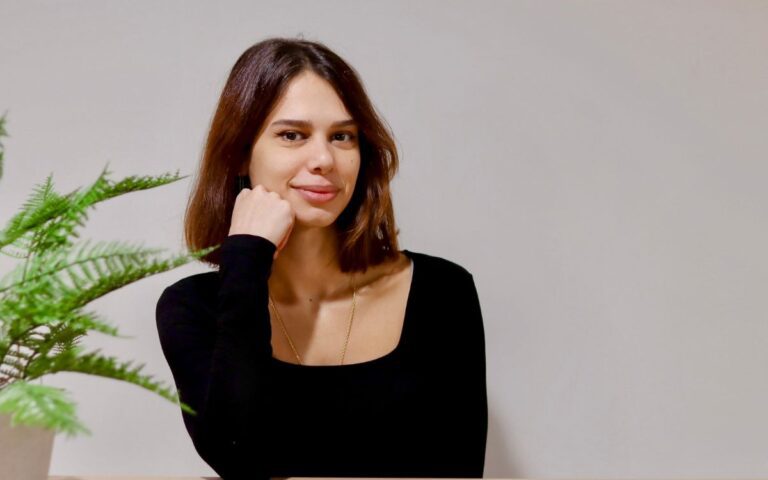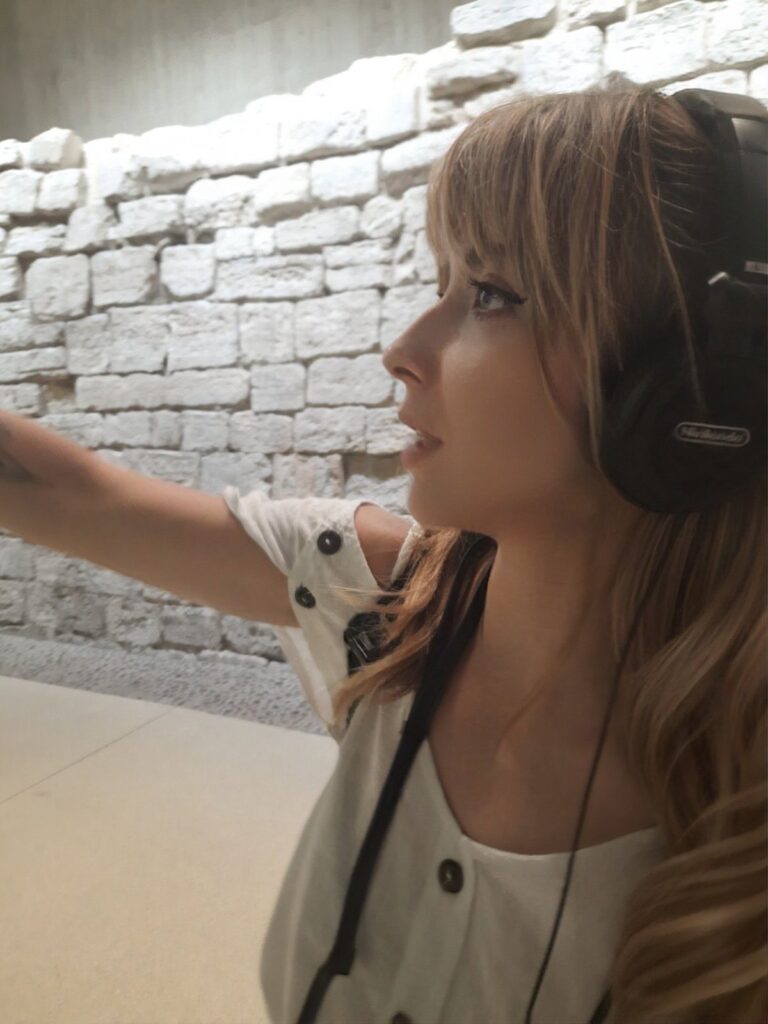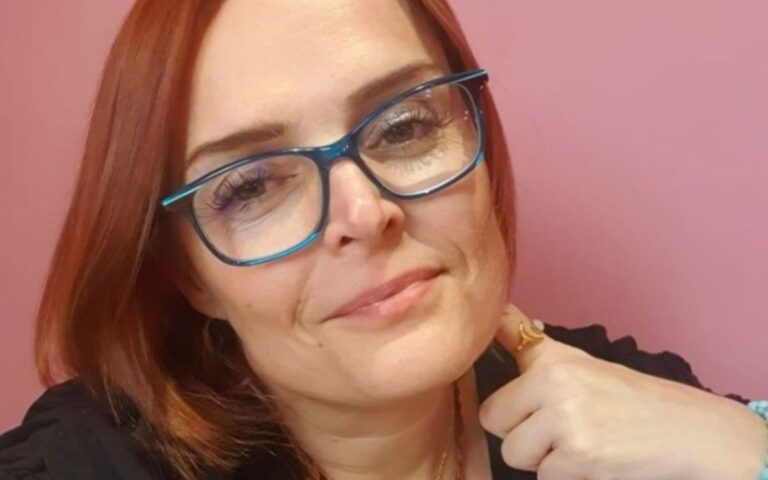After completing a course after work with Code First Girls, she discovered the joys of coding, and went on to enrol on an intensive web development bootcamp with Founders and Coders. Hannah has since worked as a software engineer for two fashion tech companies: Lyst and now EDITED.
SHECANCODE CAUGHT UP WITH HANNAH TO TALK ABOUT ENTERING THE WORLD OF TECH, WHAT SHE’S MOST PROUD OF, AND HER CAREER ADVICE FOR OTHER WOMEN IN TECH.
DID YOU (OR DO YOU) HAVE A ROLE MODEL IN TECH OR BUSINESS IN GENERAL?
I started learning to code because my friend did the same degree as me before doing a masters in Computer Science and getting a job as a developer. It showed me that someone from an arts background can successfully get into the tech field. I would never have considered a career in tech before seeing that which shows the power of role models.
WHAT ARE YOU MOST PROUD OF IN YOUR CAREER, SO FAR?
Joining the tech industry was already so far out of my comfort zone that there has been no reason not to continue to push myself further. I’ve been encouraged by mentors from the start to get involved in public speaking both internally and externally, as well as running our company’s Women in Data & Engineering group – so I gained this experience very early on in my career.
I have now been a Code First Girls Ambassador and Confidence Coach for the past 2 years, and I have also given talks at conferences and published technical articles. It is rewarding enough to receive a message from someone saying that I have helped them understand a concept they were struggling with, or that they were inspired to go into tech because they read something I wrote or attended one of my talks. But it has been an absolute honour to be recognised for my contribution to the tech community through winning two awards. I was selected as a winner of the WeAreTechWomen TechWomen100 Award in 2021, and I also made the Makers Women in Software Power List in 2022.
HAS ANYONE EVER TRIED TO STOP YOU FROM LEARNING AND DEVELOPING IN YOUR PROFESSIONAL LIFE, OR HAVE YOU FOUND THE TECH SECTOR SUPPORTIVE?
Luckily not on an individual level.
But I do think that there are ways we can improve as an industry to make it more accessible for beginners.
I gave a talk on How To Avoid Gatekeeping In Tech at FemTechConf in 2021 which touched on this. It comes down to language sometimes. Referring to something as “simple” or “easy” can be intimidating for someone who is early on in their tech journey. I found programming really difficult at first, and I did not take to it like a duck to water, whereas there are many people who do. Hearing other people refer to what took me months to understand as “easy” was off-putting because it made me feel like I was not smart enough. That is just one example of something that we can be mindful of to make tech more inclusive.
ENTERING THE WORLD OF WORK CAN BE DAUNTING. DO YOU HAVE ANY WORDS OF ADVICE FOR ANYONE FEELING OVERWHELMED?
I was a bundle of nerves when I first left the comfort of coding alone in my bedroom, to pair programming on my bootcamp where everyone could see how much (or how little) I knew. I had to quickly get used to exposing my weaknesses, but the comfort was still there in that we were all around a similar level of experience.
Once I graduated I had to find my first job and going into tech tests was really daunting, and I had a few nightmare interviews that made me feel like I didn’t know anything, before I had a really good one – and I got the job. During that interview the interviewers cared more about seeing my thought process when solving a problem, than asking me really abstract programming questions. The test was in a programming language that I was not familiar with so my interviewers let me Google syntax. I got the sense from this process that I would be given the support I needed in my first full-time tech role.
So my advice when entering your first tech role is advice I was given myself: use the interview process to interview the company too. Ask how you will be supported as a junior and if they will allocate you time and resources to train and level up. Those are the most important things you need when you start out.
My second piece of advice is to learn to be comfortable not knowing everything.
When you enter the world of work you realise everyone else is in the same boat.
The best senior engineers I know are very open about when they don’t know something, the difference is they will know how to find the answer quickly, and know the right questions to ask. That comes with time and experience.


